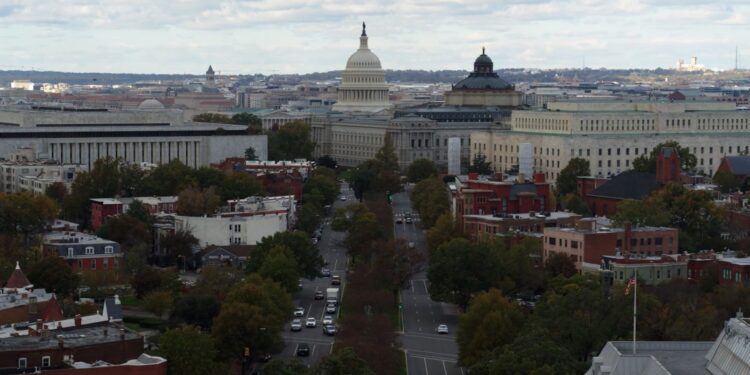President Donald Trump is intensifying his push to address crime in Washington, D.C., signaling a possible federal takeover of the city and deploying FBI agents to patrol alongside local police. The move comes as city leaders maintain a notably restrained public stance toward the president.
Over the weekend, Trump ordered a large-scale increase in federal law enforcement presence, with up to 450 officers expected to take part, according to a White House official. On Monday, he is also set to activate roughly 800 D.C. National Guard troops, according to two U.S. officials familiar with the plan.
Sources say as many as 130 FBI agents will join D.C. police on patrol, an unusual step for the bureau. Their duties will reportedly include running license plates to check for stolen vehicles and outstanding warrants.
Trump teased the initiative during the weekend, saying at a press event scheduled for Monday that the operation “will, essentially, stop violent crime in Washington, D.C.” He declared on social media that the capital would become “safer and more beautiful than it ever was before,” adding that homeless residents would be relocated and criminals “put in jail where you belong.”
While the president has claimed crime is on the rise, preliminary data from the Metropolitan Police Department shows overall crime has dropped compared to the same period last year, part of a broader trend of falling crime rates in many U.S. cities.
Mayor Muriel Bowser, dismissed the notion of a major crime spike, noting that the D.C. National Guard is ultimately under presidential control. She emphasized “shared priorities” with Trump in addressing neighborhood safety and expressed gratitude to federal law enforcement, which she said “always work cooperatively with us.”
Her comments mark the first significant public response since Trump began threatening to “take over” the city five days earlier. Most members of the D.C. Council have stayed quiet, with Councilmember Christina Henderson instead pointing to a shortage of judicial nominations from both the Trump and Biden administrations as a driver of the local crime backlog.
The mayor’s approach contrasts sharply with her posture during Trump’s first term, when she openly challenged him, most famously by having “Black Lives Matter” painted in front of the White House. Today, her strategy focuses on maintaining working relationships with federal agencies while countering Trump’s claims about rampant crime.
That balancing act has won her some acknowledgment from federal officials. U.S. Attorney for D.C. Jeanine Pirro recently said Bowser “is working with us” on public safety efforts.
Bowser has also worked with Trump on non-crime issues, such as co-announcing the NFL Draft’s arrival in D.C. in 2027 and collaborating on park beautification projects. Earlier this year, she removed Black Lives Matter Plaza after congressional Republicans threatened to cut district funding.
Trump’s interest in taking direct control of D.C. policing re-emerged last week after a former Department of Government Efficiency employee was injured in an attempted carjacking. He has also said his administration is reviewing the possibility of overturning D.C.’s Home Rule, which grants certain governing powers to the city’s local leaders.
Under current law, the president can assume control of the Metropolitan Police Department for up to 48 hours in an emergency. Extensions beyond that require congressional notification, and a takeover lasting more than 30 days would need congressional approval. Fully transferring governance of the city to the federal government would require legislation, an unlikely prospect in a narrowly divided Senate.







